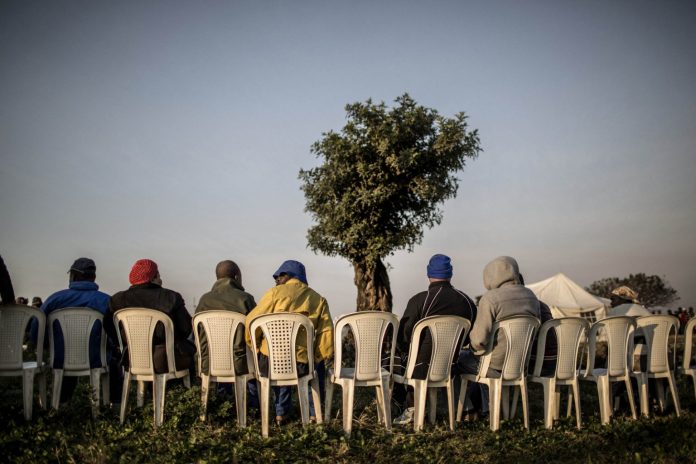Five countries across East and Southern Africa will hold presidential elections this year. In each country, human rights are under threat — including as a result of armed conflict — yet the polls could and should offer the chance for the respective governments to prioritise human rights before, during and after the elections.
Prioritising human rights couldn’t be more urgent for these governments given the dire state of human rights in their countries, with the majority also experiencing armed conflict, further aggravating the human rights situation.
In 2023, the DRC, Madagascar, Sudan, Somaliland and Zimbabwe are set to hold elections, amid one of the most difficult periods in Africa’s recent history, with many countries still grappling with the impacts of Covid-19 and armed conflict on the continent and elsewhere.
Over the course of the past three years, the Covid-19 pandemic and Russia’s war of aggression against Ukraine have wreaked havoc on markets, pushing up the prices of consumer goods such as maize meal, bread and cooking oil, and directly impacting people’s livelihoods.
Debt has also been rising in many African states, with most countries owing more than 60% of their gross domestic product to creditors. As a result, interest rates are rising while spending on healthcare, education and transport is falling, which undermines people’s economic, social and cultural rights. The rising debt also means fewer funds are available for dealing with the next economic crisis or climate disaster.
Unless something extraordinary happens, a lot of election promises in these countries are going to be just that — promises that are likely to remain unfulfilled.
Over the past three years, in the DRC, Sudan and Somaliland there has been a spike in human rights violations, including killing of civilians, conflict-related sexual violence, and destruction of property. In Madagascar and Zimbabwe activists, journalists, human rights defenders and political opposition have faced growing repression.
A crackdown on the rights to freedom of expression, peaceful assembly and association have also intensified, with the authorities using “national security” concerns or the Covid-19 pandemic as a pretext to ban, suppress or violently disperse protests.
Human rights under attack
In the DRC, for example, security forces have repeatedly resorted to excessive use of force to disperse protests. Since May 2021, the authorities have enforced a “State of Siege”, which is similar to a state of emergency, in the North Kivu and Ituri provinces, which they have used as a tool to crush peaceful dissent. Security forces in the area have killed at least two human rights defenders and activists and arbitrarily detained dozens of other activists on trumped-up charges.
Serious violations of human rights are also continuing in the country, including the ill-treatment of detainees and mass killings of people caught up in armed conflict and inter-communal violence. People from regions affected by armed conflict, including in eastern DRC, have been especially affected amid the displacement of more than 200 000 people and a deepening humanitarian crisis, with women and children among the most affected.
In Madagascar, the Covid-19 pandemic exacerbated the effects of prolonged droughts and recurrent tropical cyclones which have had a devastating impact on the country over the past five years, with many suffering acutely from food insecurity. Consequently, malnutrition rates in the region have increased affecting hundreds of thousands, while access to water, sanitation and hygiene has been greatly diminished.
In Sudan, the authorities have used military crackdowns to crush popular protests, killing hundreds of people and injuring thousands of others. Protesters, including women and children, were unlawfully detained and ill-treated, while many others were forcibly disappeared.
Another round of armed conflict broke out in April, sparked by power struggles between rival military strongmen, General Abdel Fattah al-Burhan – who commands the country’s armed forces and General Mohamed Hamdan Dagalo, who heads the Rapid Support Forces (RSF) paramilitary group. Hundreds have been killed and thousands injured in the violence which continues with no end in sight, amid a fast-unfolding humanitarian crisis in the country.
In Somaliland, fresh conflict erupted in December following the assassination of Abdifatah Abdullahi Abdi in Las Anod town by unknown armed men. As of April, the conflict had claimed more than 100 lives with over 600 injured, while tens of thousands were displaced. The authorities have also increasingly resorted to censoring, harassing and prosecuting state critics over the past five years. They targeted dissenting voices by shutting down media houses and arbitrarily arresting and prosecuting individuals perceived as being critical of government policies.
Zimbabwean President Emmerson Mnangagwa leads the country to this year’s elections following a first term in office marked by a systematic and brutal crackdown on human rights, including the violent suppression of protests. His government also weaponised the law to persecute opposition members and supporters by subjecting them to arbitrary arrest.
Senior opposition leader Job Sikhala is languishing in jail following his arrest in June 2022, after facing a number of charges and convicted in what appeared to be an escalating crackdown on freedom of expression.
As these countries prepare to hold elections, presidential candidates and political parties must commit to ensure full respect for human rights in the run up to the polls, during the elections and post the elections if elected such as by ensuring that there is no impunity for past human rights violations and guaranteeing the rights to freedom of expression, association and peaceful assembly. They should also present a concrete plan on how they intend to build rights-respecting societies.
In the DRC, Madagascar, Sudan, Somaliland and Zimbabwe, fully respecting and protecting the human rights of everyone must be the new normal. Anything less is unacceptable.
Tigere Chagutah is Amnesty International’s Director for East and Southern Africa.
Mail & Guardian





























